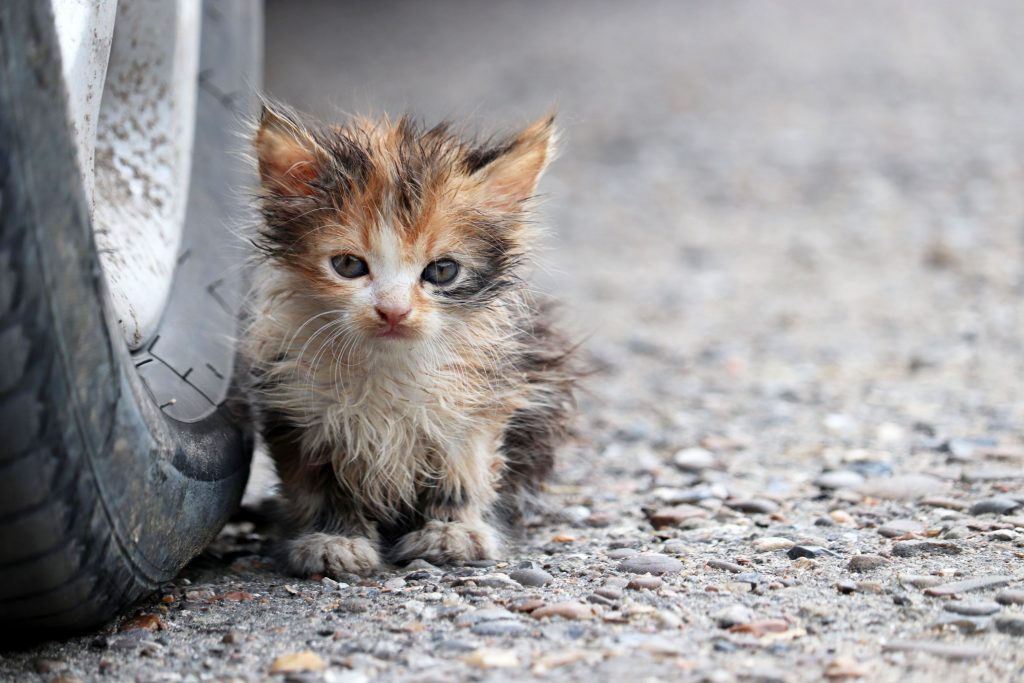Posts in Category: Pet Safety
Preparing Your Pet for Fireworks: Coping with July 4th in Knoxville
Fireworks and pets go together like oil and water. Many pets—cats and dogs alike—are terrified of the loud, cracking sounds that dominate the sky every 4th of July. The team at Volunteer Veterinary Hospital is here with tips to help manage fireworks anxiety in pets.
Continue…Winter Hazards in the Home
The great outdoors can be invigorating, but also creates a lot of potential hazards for pets.
Winter pet safety at home is a critical topic. Without a careful approach to items stored or displayed inside the home, pets can be at risk in a place they should feel absolutely safe from harm. With a little bit of attention, you can keep your pets safe all season long.
Continue…Flea and Tick Control for the Fall and Winter Months
As we head into the cooler months of the year, many pet owners make the choice to save a little money on flea and tick control. Skipping your pet’s parasite preventions isn’t always the smartest choice, though, and Volunteer Veterinary Hospital is here to help explain why.
Continue…How Hot is Too Hot? How to Prevent Heat Stroke in Pets
Summer temperatures are here, and many of us are enjoying the great outdoors with our family and friends. Often these seasonal outings include our pets. The heat can be dangerous, though, especially for those wearing a fur coat. Volunteer Veterinary Hospital knows how important summer pet safety can be. Please have a great time outside, but take a few of our pointers along to prevent heat stroke in pets.
Continue…Preventing Flea and Tick Problems for Pet Health
No one likes an unwelcome house guest, and external parasites like fleas and ticks are no exception. Volunteer Veterinary Hospital has the information you need to kick flea and tick issues to the curb, and keep your pet health habits up to par.
Continue…What to Worry About: Considering Spring Pet Safety
Spring is about embracing life-affirming positivity, joy, and abundance. The sun is shining, the flowers are blooming, and nothing can get us down. It’s the best time of the year to pivot towards health, vitality, and a happy, full future. Chances are, your pet has a keen sense for clocking the vibe shift between winter and spring. They can feel the potential, just like us. Unfortunately, that means they can come across less-than-ideal situations that threaten your approach to spring pet safety.
Continue…Our Winter Pet Safety Tactics Keep Paws Warm
It’s that time of the year again: sweater weather! There is so much to enjoy about winter in Knoxville, but not everyone loves the shorter days or chilly mornings. Pets might not necessarily know what’s going on with the weather, but they are certainly affected by it. The good news is that there aren’t too many extremes to worry about. However, winter pet safety is a concern that benefits from a proactive approach.
Continue…Supporting the Needs of an Overweight Pet
Just as it is with our ever-expanding waistlines, extra pounds on a pet don’t appear overnight. Successive weeks or months of a few extra treats a day, or a little less exercise, create the perfect storm for weight gain. The fact is, pet obesity is on the rise. Knowing what’s at stake for an overweight pet can help turn the tide and with a proactive, consistent approach, pet owners can have a direct impact on a pet’s overall health and longevity.
Continue…Have You Heard Of Hyperthyroidism in Cats?
Cat owners are typically looped into the common potential health issues facing modern felines. In addition to heartworm disease, diabetes, feline leukemia virus (FelV), and feline immunodeficiency virus (FIV), hyperthyroidism in cats is increasingly prevalent. Characterized by weight loss, increased appetite/thirst, and vomiting or diarrhea, this condition must be promptly addressed. The good news is that once hyperthyroidism in cats is properly managed, a high quality of life is attainable.
Anatomy Details
Located within the neck, the thyroid gland produces a hormone that regulates metabolism. When too much hormone is produced, metabolism increases which explains why cats lose weight despite a voracious appetite. While this symptom is a red flag, many owners don’t automatically realize that it’s tied to something serious.
Cats between the ages of 10-13 are commonly diagnosed with hyperthyroidism. Blood tests and other diagnostics can help diagnose hyperthyroidism in cats, and rule out a series of other common conditions like kidney disease, diabetes, and cancer (all share similar clinical symptoms). We may also need to perform an electrocardiogram, chest x-ray, ultrasound, and blood pressure to gain a better understanding of a cat’s condition.
Since a vast majority of cases are linked to a benign tumor on one or both lobes of the thyroid gland, it is critical to move quickly toward effective treatment. Prognosis is usually very good if caught early.
Next Steps
Depending on the severity, hyperthyroidism in cats may be properly managed with medical treatment, close monitoring, and prescription diet. Medication taken twice a day for life can decrease the production of thyroid hormone.
Injections of radioactive iodine can also decrease thyroid hormone levels in a shorter amount of time, but require a hospital stay. This is often the fastest and safest method to lower thyroid hormone levels.
Surgical removal of the thyroid gland may be necessary in extreme cases. However, the elimination of the thyroid gland may result in serious health complications.
Every Step of the Way
Your team at Volunteer Veterinary Hospital understands that hyperthyroidism in cats can be very challenging to face. Due to its effect on feline blood pressure, heart health, eye health, neurologic functions, and the kidneys, this condition must be closely observed. If we’re able to catch the disease early on, hyperthyroidism in cats can be effectively treated.
Hyperthyroidism in Cats
Your cat’s annual wellness exam creates the opportunity to catch health problems before they get out of hand. Early detection can lead to a better prognosis, affecting your cat’s overall health and lifespan.
Remember, if you see any changes to your cat’s eating/drinking behavior, vomiting and/or diarrhea, poor coat quality, and weight loss, please don’t hesitate to call us at (865) 609‑0311.
Summer In Scruffy City: Pet Friendly Knoxville
We’re number one in southern hospitality–a fact not lost on the pets we know and love. In fact, we probably go a little over the top when our four-legged friends are concerned. Pet friendly Knoxville is the place to beat when it comes to activities to share together, and we’ve got the low-down on how and where to start and end any summer day in town.
Continue…










